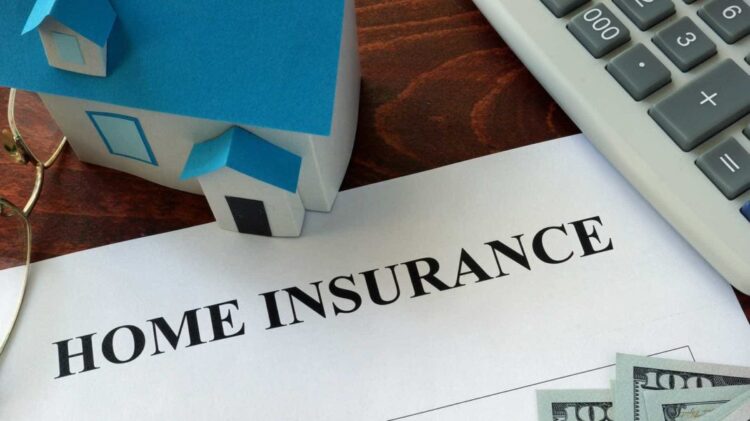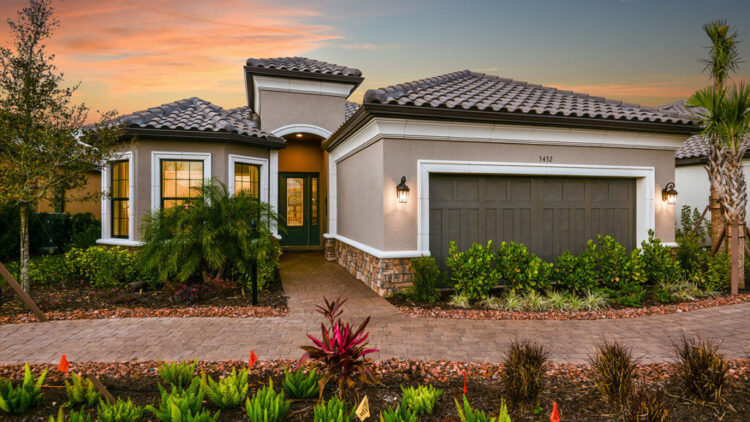We all know that homeowner’s insurance is essential. It protects our homes and property in case of a disaster. It is designed to cover the house you are living in; for rental properties, you should look into landlord insurance instead.
So, we know we need homeowner’s insurance, but I, for one, have no idea how much to get. Sound familiar? Well, let’s start with the legal requirements for homeowner’s insurance in Florida.
State Requirements v. Lender Requirements

It is possible to own a home and not have homeowner’s insurance legally. If you buy your home outright and don’t have to borrow any money to purchase it, The state of Florida doesn’t require that you have homeowner’s insurance. However, this is extremely risky.
Now, if you’re like me, you will have to borrow money to buy your home. And whoever you lend money from will need to protect their investment. Your homeowner’s insurance policy is the only way you can rest assured that your family’s investment is protected in case it is damaged or lost to a disastrous situation, like a fire. And, depending on what area of Florida you live in, there may be other risk factors to consider.
What Are the Biggest Risks for Florida Homeowners?

Every state carries its own set of risks, depending on its location. For Florida homeowners, there are three primary risks for your home and property: wind damage, sinkholes, and floods.
If you’re like 98 percent of Florida homeowners, your home is located in one of the state’s coastal counties. One of the risks of coastal living is the threat of hurricanes. These areas are at more significant risk for hurricane wind damage.
When considering how much coverage you need, it is crucial to think about the amount of your deductible or the amount that will be your responsibility. Hurricane deductibles are generally based on the rate of your home’s insurance policy. Typically, the percentage of amounts offered are one, two, five, and ten percent. According to Kin.com, if you have $300,000 coverage for your home with a hurricane deductible of two percent, you would have to pay a $6,000 deductible. Of course, the lower the deductible, the higher your policy cost.
Sinkholes are a big issue in Florida. These depressions in the ground lack adequate surface drainage, so they hold all the water in that falls. According to Florida law, insurance providers must offer coverage for ground cover collapse. That can apply to excessive loss due to sinkholes, as long as the following criteria are met:
- The failure of the ground cover is abrupt.
- The ground cover depression can be seen.
- The house and foundation incur structural damage.
- The structure is condemned by a government agency, and residents are ordered to vacate the premises.
However, sinkhole insurance is not automatically part of your homeowner’s insurance. You can get a separate sinkhole insurance policy to make sure you are covered from loss.
An increased hurricane risk brings more problems than wind damage. Since flooding often goes hand-in-hand with hurricanes, it is crucial to understand that your basic homeowner’s insurance does not cover damage from storms. Flood insurance policies cover flood damage or loss.
So, what kind of insurance do Florida homeowners need to make sure our home and property are fully covered?
Insurance Coverage for Florida Homeowners

Insurance coverage is there to protect your most significant investment. You should understand exactly what your homeowner’s policy covers, so you can supplement with specific insurance policies when needed.
Kin suggests that the best homeowner’s insurance in Florida covers your home, other buildings on the property, and your possessions from all major risk factors, including damage from hurricanes, floods, and sinkholes. That way, you can relax, knowing that even if the unthinkable happens, at least your investment is fully protected. The amount of coverage you need is based on the value of your home, which an insurance agent can help you decide.
When you want to make sure to protect your family home in Florida against loss from flood, hurricane, and sinkhole damage, the general advice is to talk to a qualified Florida insurance agent. They can help you understand what kind of insurance is necessary and what amount of coverage is right for you.
 Hi Boox Popular Magazine 2024
Hi Boox Popular Magazine 2024



